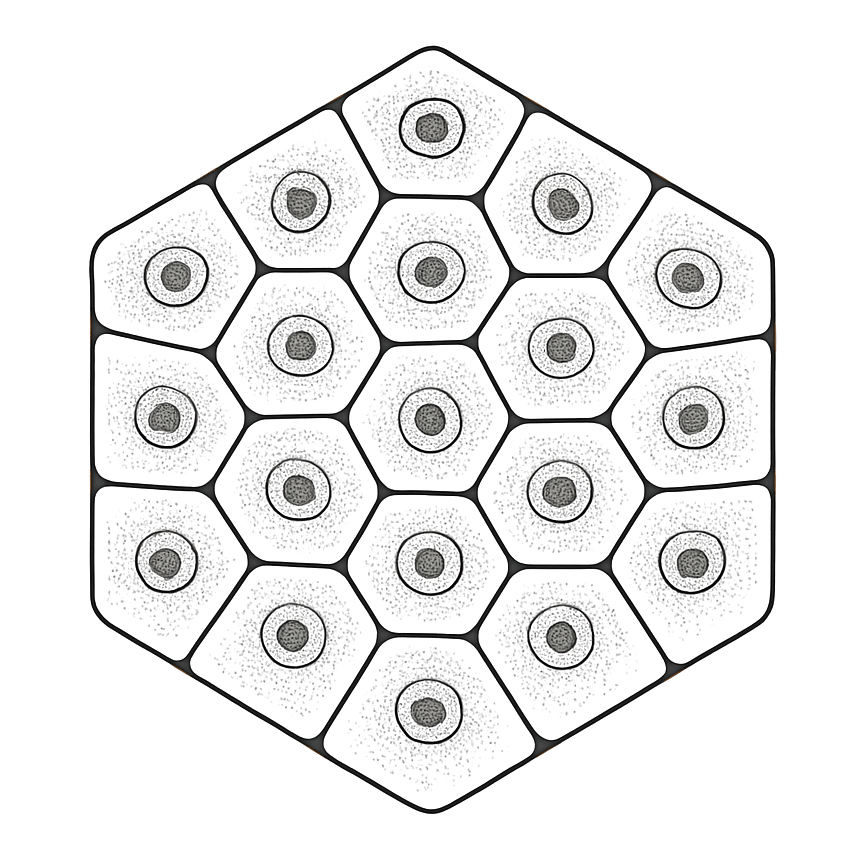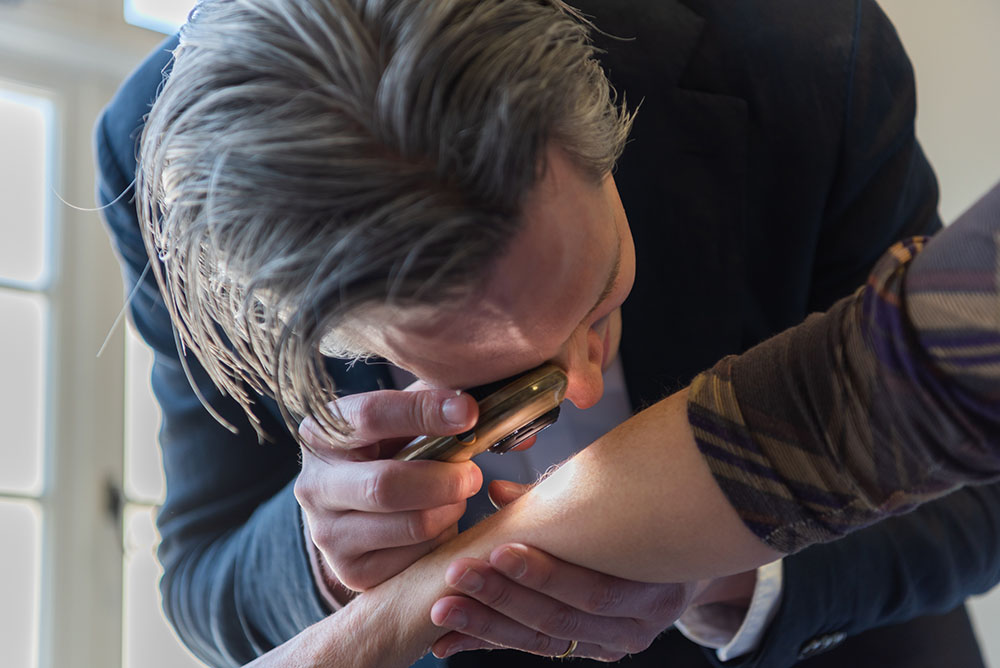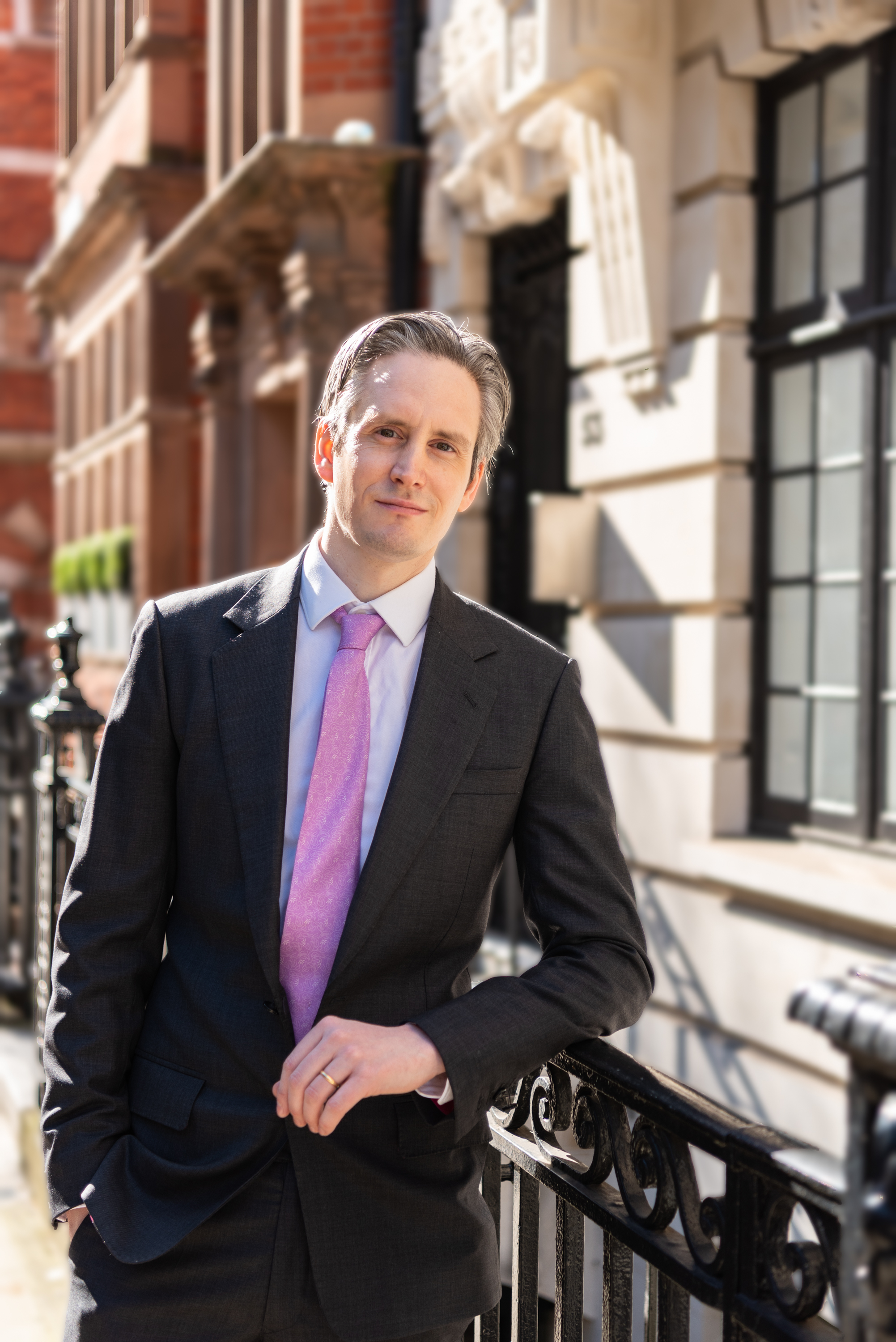
How to Find a Dermatologist in London

Finding the right specialist for your skin concerns in London can feel overwhelming. A google search reveals countless clinics and practitioners. However, it's important to understand that not all "dermatologists" are created equal. The quality of your care depends entirely on the training and qualifications of the doctor you see. This guide will walk you through exactly what to look for to ensure you are in the hands of a true expert.

'Dermatologist' is not a Protected Title
Perhaps the most important fact to know is that, in the UK, the title 'Dermatologist' is not legally protected. This means anyone can call themselves a dermatologist. This is why you must look for the title 'Consultant Dermatologist'. This title is protected and signifies a specific, high level of nationally recognised training and expertise.
Because the title 'dermatologist' is not legally protected in the UK, you may see it used by a wide range of practitioners. It is essential to understand the difference in their training and qualifications:
- Aesthetic or Beauty Therapists: These practitioners are not medical doctors and do not have medical training to diagnose or treat skin diseases.
- 'Cosmetic Doctors' or 'Aesthetic Practitioners': This title is often used by medical doctors who have completed short, non-specialist courses in specific cosmetic procedures like injectables or lasers. While they are medically qualified, they not completed the mandatory, multi-year specialist training programme required to become a Consultant Dermatologist and in many cases have not completed training in any specialty or GP training..
- GPs with a Special Interest in Dermatology (GPwSI / GPwER): These are General Practitioners who have undertaken extra training in dermatology to manage common skin conditions within primary care. They have often completed a diploma in dermatology. They play a valuable role in the NHS, but their training is not as extensive as that of a consultant, and they are not on the GMC Specialist Register for dermatology.
- Practitioners with Non-Recognised Overseas Qualifications: A doctor might have trained as a dermatologist in another country. However, unless they have completed the rigorous process to be formally recognised and added to the GMC's Specialist Register in the UK, they cannot practise as a Consultant Dermatologist here.
- General 'Skin Specialists' or Trichologists: These titles can be used by anyone irrespective of training. A trichologist, for example, specialises in the science of hair and scalp but is not a medical doctor. The term 'skin specialist' has no formal or legal meaning and can be used by anyone, regardless of their training.
Only a Consultant Dermatologist listed on the GMC Specialist Register has completed the full, nationally-accredited training pathway to become a top-level expert in skin, hair, and nail disease.
A Consultant Dermatologist is a doctor who has first trained in general medicine for 4 years and then completed at least 4 (and often many more) years of highly competitive, intensive, and accredited specialist training exclusively in dermatology. In essence, a Consultant Dermatologist in the UK is the direct equivalent of a 'Board-Certified Dermatologist' in the USA. A "Locum Consultant Dermatologist" is not the same as a Consultant Dermatologist and any doctor with some relevant experience can be appointed to this temporary NHS position.

6-Step Checklist to Verify a Dermatologist's Credentials
To ensure you're choosing a properly qualified specialist, follow these essential steps. A genuine Consultant Dermatologist will be transparent about their credentials and will welcome informed patients.
Step 1: Check the GMC Specialist Register
This is the single most important check. Every fully qualified Consultant Dermatologist in the UK must be on the General Medical Council's Specialist Register for Dermatology. If a doctor is not on the specialist register for dermatology they are not recognised as a specialist in the UK.
- Go to the GMC Online Register.
- Enter the doctor's name or 7-digit GMC number.
- Confirm that the 'Specialist Register' section lists 'Dermatology'.
Check my registration: You can verify my status by searching 'Magnus Lynch' or my GMC number, 6064789. Below is a screenshot of my entry confirming my specialist registration in Dermatology.

Step 2: Check Their Qualifications
Look for these post-nominal letters, which indicate a standard UK training path:
- MRCP: Membership of the Royal College of Physicians (this requires passing a number of demanding exams over several years). MRCP is a pre-requisite for entering specialist training in dermatology.
- CCT in Dermatology, MRCP(Derm): These qualifications are awarded on completion of a recognised-training program in dermatology within the UK.
- FRCP: Fellowship of the Royal College of Physicians - a senior fellowship awarded after several years working as a consultant for significant contributions to medicine.
- MRCS: Membership of the Royal College of Surgeons (a prerequisite for specialist training in surgery). This also requires passing a number of demanding exams over several years. It is not required for training in dermatology, however some Mohs surgeons have completed this additional qualification.
My qualifications: My post-nominals, MA(Cantab), DPhil(Oxon), MRCS, and FRCP, reflect my training path through medicine at Cambridge, a DPhil (PhD) at Oxford, and my specialist qualifications including Membership and subsequent Fellowship of the Royal College of Physicians and Membership of the Royal College of Surgeons.
Step 3: Check Their Training and Fellowships
Where a doctor trained is crucial. While excellent doctors train worldwide, training differs significantly from one country to another. For example in some countries there is very little skin cancer and dermatologists do not recieve a high level of training in skin surgery. In other countries the specialist training programs are much shorter and although doctors are recognised as a specialist they will initially work under the supervision of a more experienced specialist. A UK-based dermatology training programme ensures that consultants are trained to work independently and are fully versed in the range of conditions seen in the UK as well as NHS standards and national guidelines. Furthermore, check if they have undertaken any advanced, post-training fellowships. These are highly competitive positions that provide super-specialised expertise in a particular area.
My training and fellowship: My entire medical and dermatological training was completed in the UK at leading institutions. After finishing my specialist training, I undertook a prestigious fellowship in Mohs micrographic surgery and advanced dermatological surgery at the world-renowned St John’s Institute of Dermatology in London. This represents the highest level of training available for surgical skin cancer treatment.
Step 4: Check for a Substantive NHS Consultant Post
Has the doctor been appointed to (now or in the past) a substantive (permanent) Consultant post in an NHS hospital? This is a key quality mark. A substantive post is awarded after a rigorous national appointment process, unlike a locum (temporary) post. Substantive consultants in teaching hospitals are responsible for treating the most complex cases and training the next generation of dermatologists.
My NHS role: Alongside my private practice, I hold a substantive NHS Consultant post at Guy's Hospital, a major London teaching hospital. This role keeps me at the forefront of clinical dermatology. I also train doctors from the UK and internationally who want to specialise in Mohs surgery and who are undertaking a Mohs fellowship.
Step 5: Check Their Specialist Interests
Dermatology is a broad field. Does the consultant have a declared area of expertise that matches your needs? You can usually find this on their personal or clinic website, and often on their NHS consultant profile page on the hospital's website. Their publications can also give a strong clue as to their main clinical and research interests.
My specialist interests: My clinical practice is focused on the diagnosis and management of skin cancer. This includes advanced skin cancer screening and mole mapping, and surgical treatment using advanced techniques, particularly Mohs micrographic surgery for facial skin cancers. I also specialise in laser treatments and the treatment of acne scarring, rosacea and acne.. I am not a specialist in the treatment of complex eczema or psoriasis requiring tablet or injection treatments. I do not see patients under the age of 18 and I do not perform allergy testing or patch testing.
Step 6: Check Their Research Publications
It is not essential to have performed research to be a competent doctor, however a commitment to research shows a dedication to advancing the field and in reality it is very rare to find a true specialist without peer-reviewed publications in their area of interest.PubMed is a free database of biomedical literature. To find a doctor's research, search for their last name and initials (e.g., "Lynch MD"). Look for recent articles in reputable, peer-reviewed journals.
My research: I lead a research group at a major UK university (King's College London). You can find a list of my publications on PubMed by searching 'Lynch MD'. My research focuses on the molecular biology of skin cancer and the application of AI in dermatology. Full List of Publications.

What Doesn't Guarantee Expertise
While verifying credentials is key, it's also important to recognise marketing tactics that can be misleading. Be wary of relying on the following, as they are no substitute for the fundamental qualifications outlined above:
- A Premium Address or Lavish Clinic: A beautiful clinic in a prestigious London location creates a good impression, but it says nothing about the medical qualifications of the practitioner - anyone can open a clinic on Harley Street even without any medical qualifications. The most important investment should be in clinical training, expertise and patient safety rather than a "prestigious" location or interior design.
- An Impressive Social Media Following: Social media is a valuable marketing tool and it takes considerable time and marketing skills to achieve this, however there is little overlap between the skills required to master social media marketing and those required to diagnose and treat complex skin conditions. A large number of followers or curated 'before and after' photos are not a reliable measure of clinical skill, diagnostic accuracy, or surgical competence. Clinical excellence is demonstrated through professional qualifications, peer-reviewed research, and patient outcomes.
- Misleading Titles like 'Cosmetic Dermatologist': As 'dermatologist' is not a protected title, terms like 'cosmetic dermatologist' or 'aesthetic doctor' can be used by individuals without any relevant training. A true expert in cosmetic dermatology is a fully qualified Consultant Dermatologist who has chosen to sub-specialise. Their expertise is built on years of rigorous medical training, not just short courses. Always check the GMC Specialist Register first.
- A diploma in dermatology: A diploma in dermatology is a classroom-based qualification that takes 1 year to complete and is open to any doctor. It will help that doctor to diagnose and treat basic skin conditions but is not a replacement for a multi-year training program that requires clinical assessment and treatment of thousands of patients under the supervision of an experienced dermatologist.
- A Long List of Machine or Product Certifications: Certificates for specific lasers or injectable brands are typically issued by manufacturers after a few hours or days of training. They are not medical qualifications and are not comparable to the years of study required to become a Consultant Dermatologist.
- Aggressive Sales Tactics and 'Package Deals': A medical consultation should be focused on an accurate diagnosis, a discussion of your options, and patient education. High-pressure sales tactics or a heavy focus on selling multi-treatment packages can be a sign that commercial interests are being prioritised over your individual medical needs.

How I can help
Choosing a dermatologist is an important decision. Following the above steps will empower you to find a true expert in your area of concern. If, having researched my background and areas of expertise, you would like to schedule a consultation, please get in touch.
I consult with private patients at several well-appointed and conveniently located sites across central London:
- London Bridge Hospital: Conveniently situated within The Shard, next to London Bridge station.
- Skin55 Ltd: Located at 55 Harley Street, this beautiful Edwardian building houses one of the largest private dermatology facilities in the UK with a comprehensive laser suite.
- OneWelbeck: Located close to Bond Street underground station. Mohs surgery, lasers, and other skin surgeries are performed in the state-of-the-art surgical suite here.
A new consultation is £250, a follow up consultation is £220. For more information on fees, please visit Prices.














